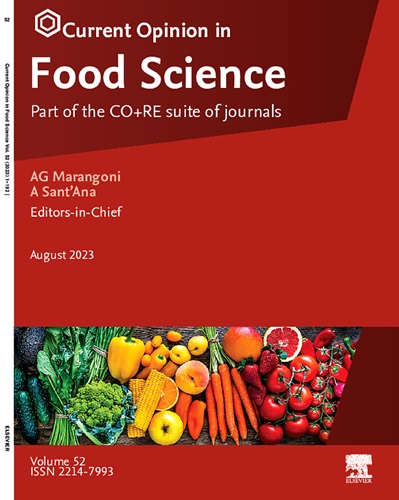Food-related fake news, misleading information, established misconceptions, and food choice
IF 8.9
1区 农林科学
Q1 FOOD SCIENCE & TECHNOLOGY
引用次数: 0
Abstract
The increasing proliferation of food-related fake news and misleading information on emerging media platforms significantly influences consumer food perceptions and consumption behaviours. Research shows that fake news or misleading labelling can alter the acceptability and even the perceived healthiness of food products. Studies highlight the complex interplay between fake news, misleading information, and consumer perceptions. However, while misinformation contributes to the formation of misconceptions, other longstanding societal and psychological factors, as well as intrinsic and extrinsic food product characteristics, were found to play the major role. This paper explores the influence of the exposure to food-related misinformation and established food-related misconceptions on food choice and examines the role of sensory and consumer science in this discussion.
与食物有关的假新闻、误导性信息、既定的误解和食物选择
新兴媒体平台上与食品相关的虚假新闻和误导性信息日益泛滥,极大地影响了消费者对食品的认知和消费行为。研究表明,假新闻或误导性标签可以改变食品的可接受性,甚至改变人们对食品健康的看法。研究强调了假新闻、误导性信息和消费者认知之间复杂的相互作用。然而,虽然错误信息有助于误解的形成,但其他长期存在的社会和心理因素以及食品的内在和外在特征也起着主要作用。本文探讨了暴露于食品相关的错误信息和建立食品相关的误解对食品选择的影响,并探讨了感官和消费者科学在这一讨论中的作用。
本文章由计算机程序翻译,如有差异,请以英文原文为准。
求助全文
约1分钟内获得全文
求助全文
来源期刊

Current Opinion in Food Science
Agricultural and Biological Sciences-Food Science
CiteScore
18.40
自引率
4.00%
发文量
157
审稿时长
92 days
期刊介绍:
Current Opinion in Food Science specifically provides expert views on current advances in food science in a clear and readable format. It also evaluates the most noteworthy papers from original publications, annotated by experts.
Key Features:
Expert Views on Current Advances: Clear and readable insights from experts in the field regarding current advances in food science.
Evaluation of Noteworthy Papers: Annotated evaluations of the most interesting papers from the extensive array of original publications.
Themed Sections: The subject of food science is divided into themed sections, each reviewed once a year.
 求助内容:
求助内容: 应助结果提醒方式:
应助结果提醒方式:


